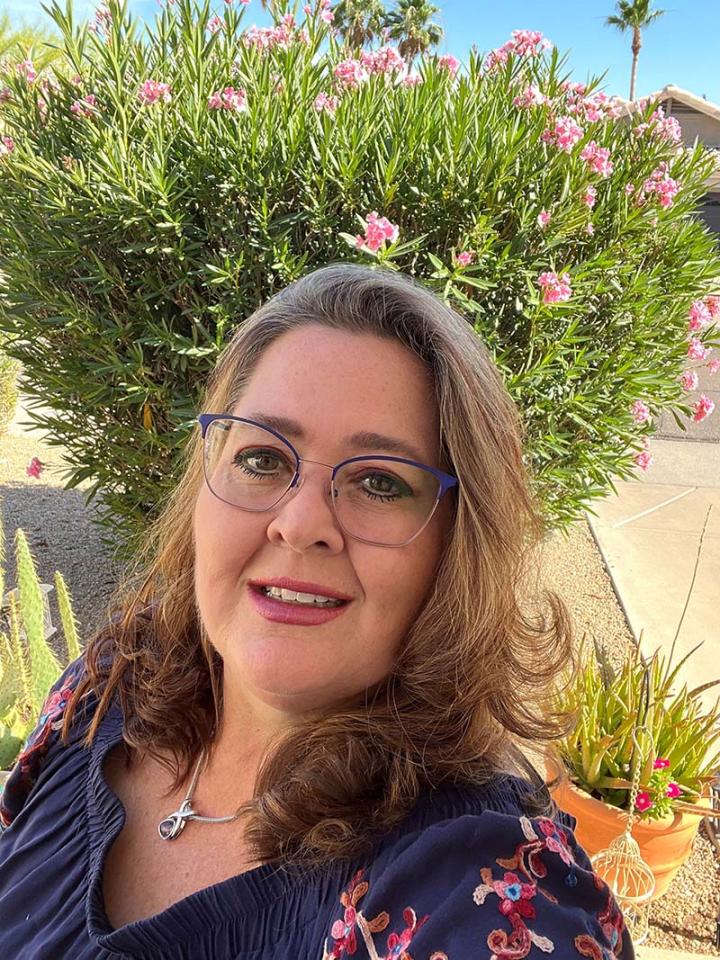The only problem was although this procedure has been around for years and utilized in other states, it wasn't available in Arizona. For a long time, Dr. Montes pushed to have the procedure made available here, and in 2021, she was successful. Colleen was the first patient in Arizona to receive this procedure. When asked how she felt about this, she says, "Others asked if I was scared to be the first, which I wasn't. Dr. Montes has been trained on the procedure, and it has been done routinely in other states for years. It is safe, and others should give it a try."
During the procedure, Dr. Montes discovered that Colleen had two large fibroids, one near her cervix, which was the size of a mandarin orange, and the other towards the back of her uterus, which was the size of two navel oranges.
Once the procedure was finished, Colleen was told to rest, and she returned home. She shared that there was minimal pain, bruising on her abdomen and some bleeding for a few months after, but she was able to return to normal life in less than a week. Colleen also didn’t require prescription pain medication during her recovery – she only took a few Ibuprofen.
Dr. Montes monitored Colleen every three months for one year – taking vaginal ultrasounds to measure how much the fibroids were shrinking. The goal is to have them shrink up to 40% in volume within a year following the procedure. “One important point to remember is it doesn't make the fibroid disappear,” Dr. Montes says, “the procedure makes it smaller in volume and softer, which helps with symptoms including but not limited to heavy menses, pelvic pain, pressure, urinary or bowel symptoms, and bloating.”
It has now been one year since Colleen had the procedure, and she has experienced major improvements in her quality of life. She is no longer anemic, so she was able to stop taking iron pills. She doesn’t feel tired all the time and seems to have increased energy, and most importantly, she no longer has irregular menstrual cycles and bleeding in-between. Colleen went a step further to say how glad she was that she was able to keep her body parts and isn’t on lifelong medication, which would have been the result of having a hysterectomy.
“If you are dealing with symptomatic fibroids, I would definitely have you consider this procedure,” says Dr. Montes. “It is a great tool, and my patients and I are very happy with the results.”
Learn more about gynecology care and services at HonorHealth.

